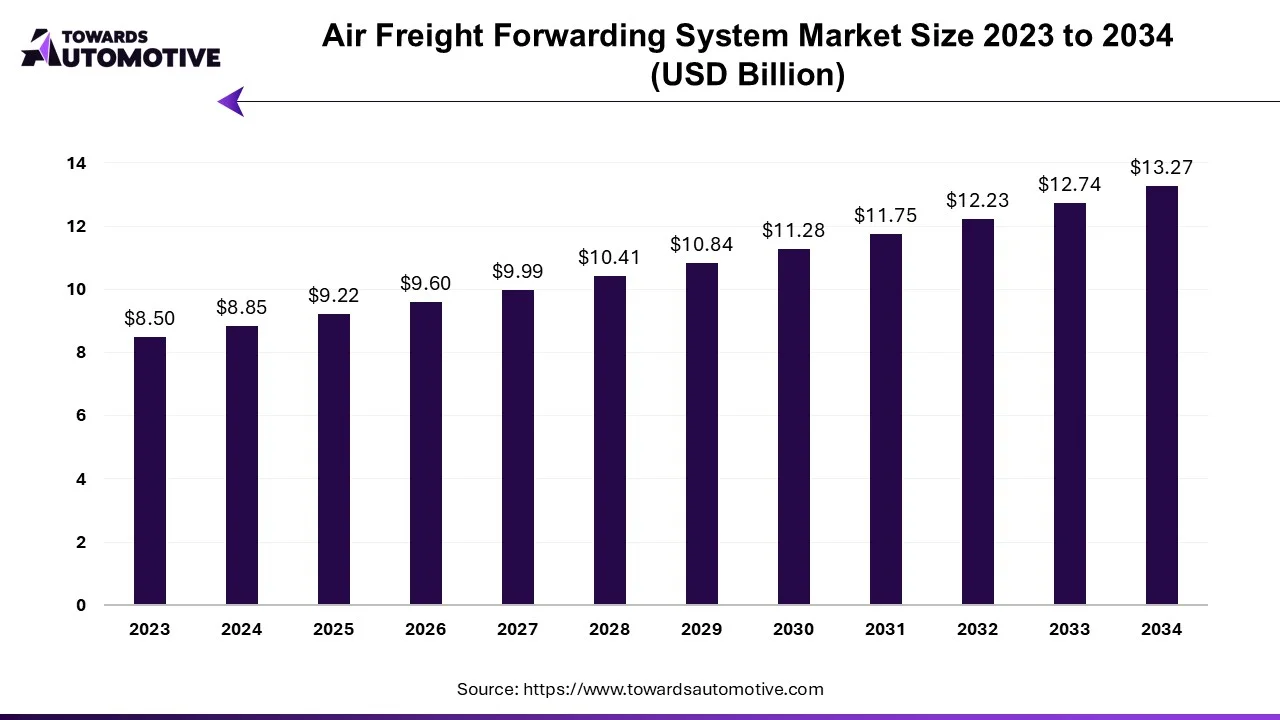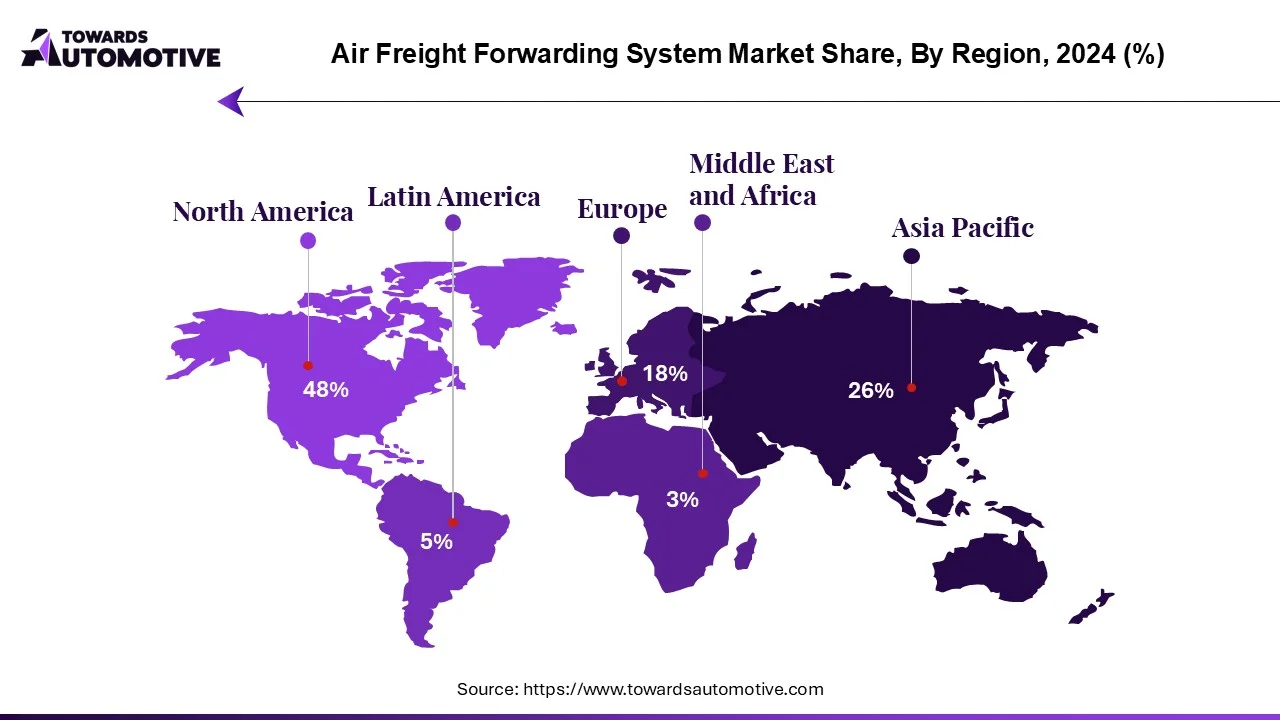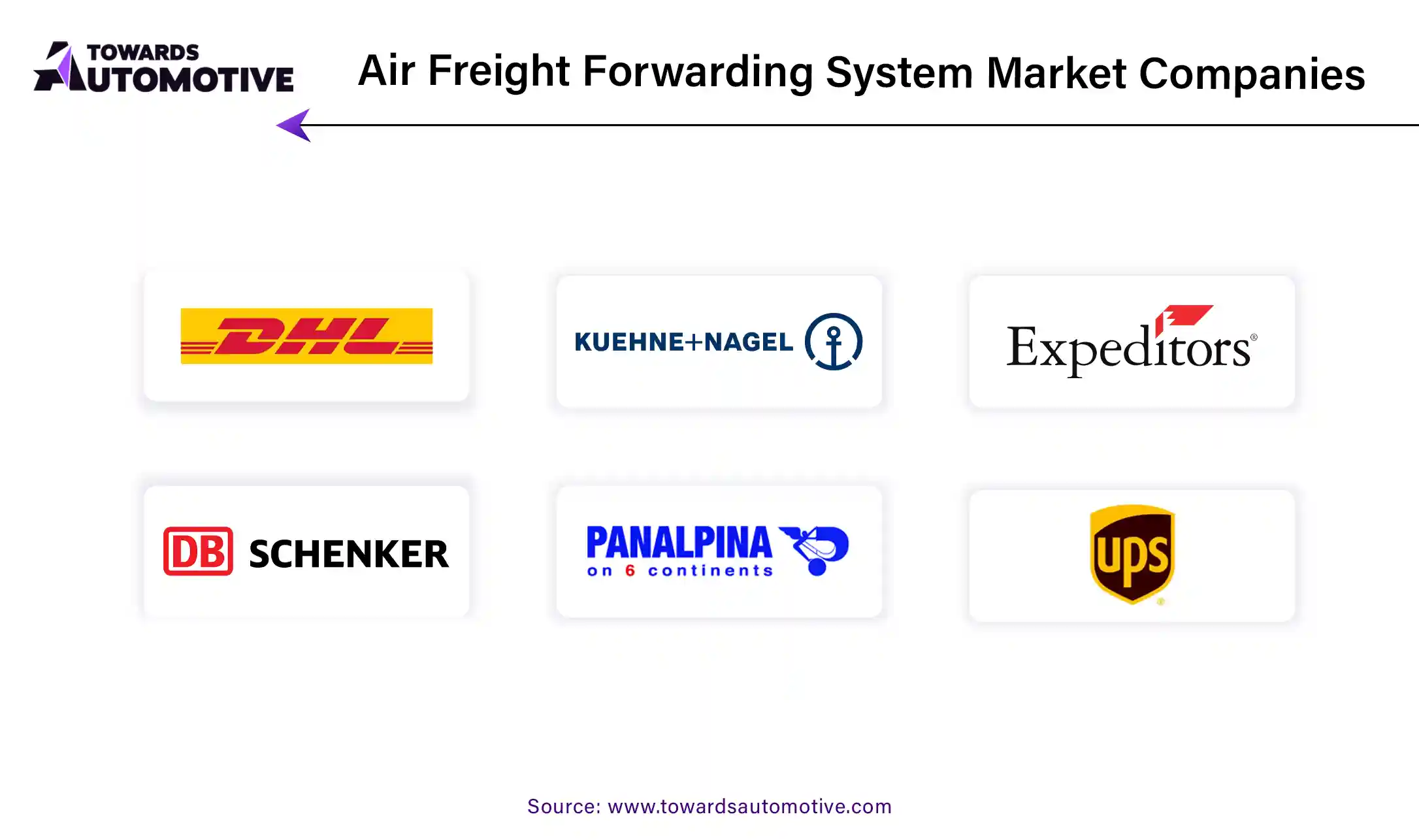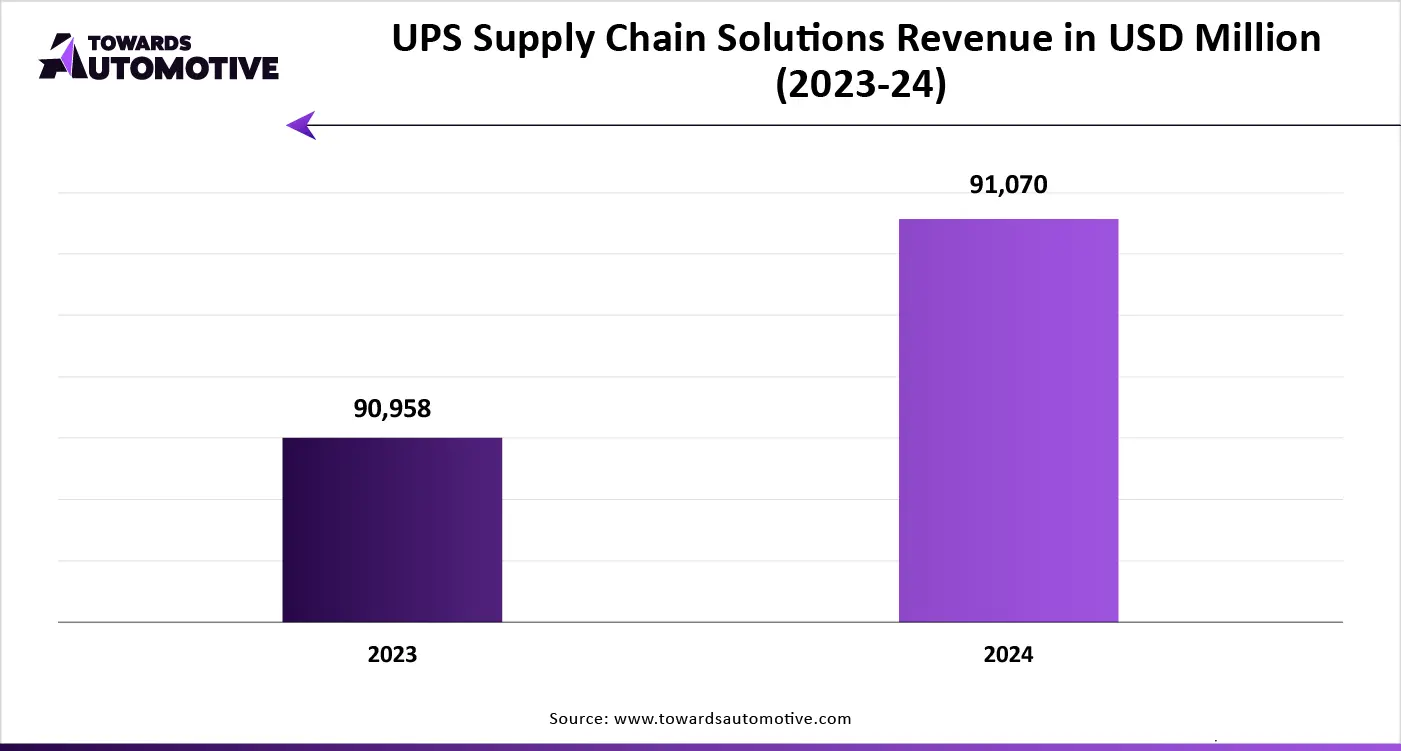September 2025
The air freight forwarding system market is projected to reach USD 13.27 billion by 2034, expanding from USD 9.22 billion in 2025, at an annual growth rate of 4.13% during the forecast period from 2025 to 2034.

Unlock Infinite Advantages: Subscribe to Annual Membership
The rapid expansion of the e-commerce sector coupled with technological advancements in the logistics industry has boosted the market expansion. Additionally, the growing investment by airline companies to enhance international goods transportation along with integration of cloud-based transportation management system (TMS) for enhancing air cargo services is adding to the overall industrial expansion. The rising geopolitical issues and integration of AI in transportation management platforms is expected to create ample growth opportunities for the market players in the upcoming days.
The air freight forwarding system market is a crucial segment of the logistics industry. This industry deals in delivering services to facilitate air cargo transportation. There are various types of services provided by this sector consisting of international air freight forwarding and domestic air freight forwarding. The end-user of this sector includes freight forwarders, cargo airlines, shippers & manufacturers, 3pl (third-party logistics) providers, e-commerce retailers and some others. The integration of advanced technologies such as AI and IoT in cargo handling is playing a vital role in shaping the industrial landscape. This market is expected to rise significantly with the growth of the airlines sector across the globe.
| Metric | Details |
| Market Size in 2024 | USD 8.85 Billion |
| Projected Market Size in 2034 | USD 13.27 Billion |
| CAGR (2025 - 2034) | 4.13% |
| Leading Region | North America |
| Market Segmentation | Nippon Express, C.H. Robinson Worldwide, DHL Global Forwarding |
| Top Key Players | By System, By Deployment Mode, By Organization Size, By Application, By End Use and By Region |
The major trends in this market consists of exploration of new trade routes, integration of AI in freight management platforms and export of artilleries.
Several logistics providers are launching air cargo services in new areas for strengthening the cross-border trading activities.
Nowadays, the software developers have started integrating AI in their platforms to enhance the supply chain operations of air freight.
The export of military equipment from major supplying nations such as the U.S., Russia, China, Israel and some others has increased the demand for defense-based air cargo services.
How Did the Transportation Management System (TMS) Segment Led the Air Freight Forwarding System Market in 2025?
The transportation management system (TMS) segment dominated the highest share of the market. The growing adoption of advanced TMS in cargo flights to gather real-time updates has driven the market expansion. Additionally, rising popularity of air transport management platform for booking freights conveniently has boosted the growth of the air freight forwarding system market.
The warehouse management system (WMS) segment is expanding with a considerable CAGR during the forecast period. The growing adoption of advanced WMS solutions in air freight management sector has driven the market expansion. Additionally, numerous applications of WMS such as real-time inventory tracking, automated order fulfillment, optimized warehouse layout and processes, customizable reporting and analytics, and some others is driving the growth of the air freight forwarding system market.
What Made Cargo Airlines to be the Most Dominant Segment of Air Freight Forwarding Market in 2025?
The cargo airlines segment held the highest share of the industry. The growing adoption of advanced freight forwarding systems in cargo airlines for handling goods accurately has driven the market expansion. Moreover, partnerships among logistics companies and software providers to deploy cloud-based freight management solutions for facilitating airline cargo is expected to boost the growth of the air freight forwarding system market.
The shippers and manufacturers segment is expanding with a notable CAGR during the forecast period. The rising use of WMS software by shipping companies for tracking goods that are kept in warehouses has boosted the market expansion. Also, collaborations among manufacturing companies and logistics brands to provide air-based freight services in different parts of the world is expected to drive the growth of the air freight forwarding system market.

North America held the highest share of the air freight forwarding system market. The growing development in the e-commerce industry along with rise in number of warehouses in the U.S. and Canada has driven the market expansion. Also, numerous government initiatives aimed at developing the airlines sector coupled with rapid adoption of airways for secure logistics operations is playing a vital role in shaping the industrial landscape. Moreover, the presence of several market players such as Flexport, WNS Global Services, Expeditors International and some others is expected to boost the growth of the air freight forwarding system market in this region.
Asia Pacific is expanding with a significant CAGR during the forecast period. The growing adoption of air freight services for exporting pharmaceutical goods such as medicines, vaccines, medical equipment and some others has boosted the market expansion. Additionally, rapid investment by government of several countries such as India, China, Japan, South Korea and some others for developing the airport infrastructure is further contributing to the industrial growth. Moreover, the presence of numerous market players such as Nippon Express, MOL Logistics, Kerry Logistics, Pattaya Airway and some others is expected to propel the growth of the air freight forwarding system market in this region.

The air freight forwarding system market is a rapidly developing industry with the presence of several dominating players. Some of the prominent companies in this industry consists of Nippon Express, C.H. Robinson Worldwide, DHL Global Forwarding, Kuehne + Nagel, Expeditors International, DB Schenker, Panalpina, UPS Supply Chain Solutions, Agility Logistics, FedEx Logistics and some others. These companies are constantly engaged in delivering goods through air transportation and adopting numerous strategies such as collaborations, launches, partnerships, acquisitions, joint ventures and some others to maintain their dominance in this industry.

By System
By Deployment Mode
By Organization Size
By Application
By End Use
By Region
September 2025
September 2025
September 2025
August 2025
We offer automotive expertise for market projections and customizable research, adaptable to diverse strategic approaches.
Contact Us